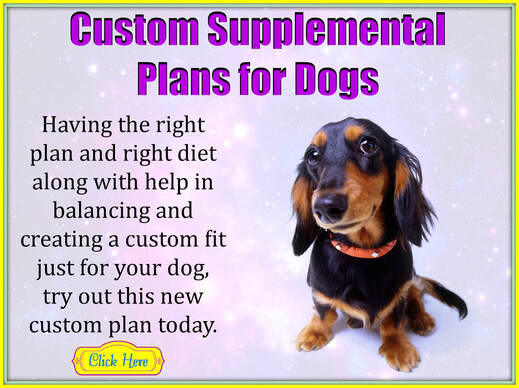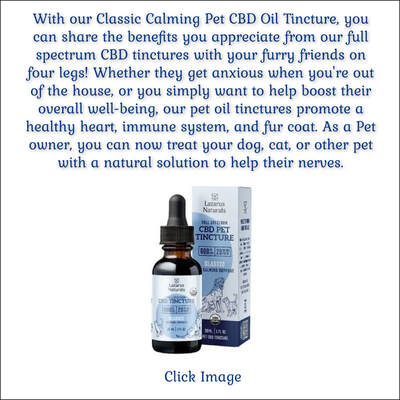
By Dr Karen Becker
"If Your Pet is Deficient in This Nutrient,
It Means His Heart, Brain, Immune System and
Other Vital Organs Could Be Robbed of Essential Energy"
Your pet's body depends on this nutrient to help tame free radicals, support heart health, and supply energy to cells. Problem is... your pet's ability to make this crucial substance declines with age. How can you help support his cells, tissues and organs?
Your pet's body requires cellular energy to properly function. Not only does energy keep your pet alive and active, it also promotes health in many ways you can't even see.
It’s easy to know when your pet has plenty of energy. He has a hearty appetite, he’s eager to play, and he seems content.
"If Your Pet is Deficient in This Nutrient,
It Means His Heart, Brain, Immune System and
Other Vital Organs Could Be Robbed of Essential Energy"
Your pet's body depends on this nutrient to help tame free radicals, support heart health, and supply energy to cells. Problem is... your pet's ability to make this crucial substance declines with age. How can you help support his cells, tissues and organs?
Your pet's body requires cellular energy to properly function. Not only does energy keep your pet alive and active, it also promotes health in many ways you can't even see.
It’s easy to know when your pet has plenty of energy. He has a hearty appetite, he’s eager to play, and he seems content.
|
Energy levels are closely linked to overall health. So, naturally, younger animals tend to be full of vitality and generally enjoy a high level of health.
But what about when your pet reaches ‘middle age’ and beyond and begins showing signs of less youthful vigor or less-than-optimal health? Even if your companion is still active... How can you know all is okay on the inside? How can you tell your pet has the energy he needs for optimal health? |
A Hidden Source of Energy for Your Pet
There's a coenzyme that works in your pet's body that helps make energy for just about every cell.
Nearly every single one of his body functions depend on it... every cell... every organ... and every tissue as well.
Coq10 replenish Pet's Cellular Energy
Your pet depends on CoQ10 to replenish cellular energy.
Your pet's body requires this essential coenzyme - Coenzyme Q10, or CoQ10 for short -- to properly function. And it's no different with your body. Your body can't properly function without CoQ10 either.
CoQ10 is a compound produced naturally in the liver.
And deep down in the mitochondria - the cell's powerhouse - that's where you'll find CoQ10 at work.
There's a coenzyme that works in your pet's body that helps make energy for just about every cell.
Nearly every single one of his body functions depend on it... every cell... every organ... and every tissue as well.
Coq10 replenish Pet's Cellular Energy
Your pet depends on CoQ10 to replenish cellular energy.
Your pet's body requires this essential coenzyme - Coenzyme Q10, or CoQ10 for short -- to properly function. And it's no different with your body. Your body can't properly function without CoQ10 either.
CoQ10 is a compound produced naturally in the liver.
And deep down in the mitochondria - the cell's powerhouse - that's where you'll find CoQ10 at work.
Cells use CoQ10 to support their energy and growth. Cells with the fastest turn over - like heart cells, mouth tissue cells, intestinal mucosal cells and immune system cells -demand high levels of CoQ10. Coenzyme Q10 also does other things in your pet's body.
Factors That Can Drain Your Pet's CoQ10 Levels
Just like with your own body, as your pet reaches middle age, his level of CoQ10 gradually diminishes. Your pet's ability to convert CoQ10 into its active form - ubiquinol - declines as well. Certain conditions can affect your pet's ability to get enough ubiquinol, or active CoQ10, such as:
You may be wondering if your pet can get CoQ10 from her diet... Food sources of CoQ10 include oily fish like mackerel, salmon, and sardines, organ meats and whole grains.
Factors That Can Drain Your Pet's CoQ10 Levels
Just like with your own body, as your pet reaches middle age, his level of CoQ10 gradually diminishes. Your pet's ability to convert CoQ10 into its active form - ubiquinol - declines as well. Certain conditions can affect your pet's ability to get enough ubiquinol, or active CoQ10, such as:
- Increased stress load on his body
- Not enough CoQ10 in his diet
- Greater metabolic demand from cells and tissues
- A shortage of factors to convert CoQ10 into its active form, ubiquinol
You may be wondering if your pet can get CoQ10 from her diet... Food sources of CoQ10 include oily fish like mackerel, salmon, and sardines, organ meats and whole grains.
Here's the challenge... Even if your pet were to consume a diet high in these sources every day, she would still be faced with her body's decreased ability to convert CoQ10 into the active form she needs - ubiquinol - as she ages.
Help Increase Your Pet's Declining CoQ10 Levels to Optimize the Potential for a Vibrantly Healthy Pet
Since adding more food sources of CoQ10 into your pet's diet may not help her get the ubiquinol levels she needs for optimal health, I advise pet parents to offer their companions a quality ubiquinol supplement.
Which pets can potentially benefit from a ubiquinol supplement?
Help Increase Your Pet's Declining CoQ10 Levels to Optimize the Potential for a Vibrantly Healthy Pet
Since adding more food sources of CoQ10 into your pet's diet may not help her get the ubiquinol levels she needs for optimal health, I advise pet parents to offer their companions a quality ubiquinol supplement.
Which pets can potentially benefit from a ubiquinol supplement?
An animal of any breed who can use additional cardiovascular support (start supplementing as early as possible to support optimal heart health). All cats and dogs age 7 and older, to help minimize oxidative stress and support optimal health. Performance and athletic animals to support recovery from strenuous muscle use. All of these pets can likely benefit from a daily supplemental dose of ubiquinol to help increase their likelihood of a vibrantly healthy life. What Can Ubiquinol Potentially Do For YOUR Pet?
When you give your pet the gift of ubiquinol, you may:
When you give your pet the gift of ubiquinol, you may:
- Help optimize energy production for cells and bodily functions
- Help your pet live a more active, energetic life
- Provide for optimal energy products
- Promote healthy blood sugar levels already in the normal range
- Help support optimal heart health
- Help strengthen your pet's cardiovascular system
- Help maintain the critical energy level for your pet's most vital muscle - his heart.
- Help protect cells against free radical damage
- Lend antioxidant support to your pet's body to minimize oxidative stress to cells, tissues, and organs
- Help recharge other antioxidants to their optimal, active states
- Help reduce the signs of normal aging that are caused by oxidative stress
- Help bring back the youthful vigor in your mature pet
- Help her act more alert and responsive
- Help her maintain optimal health even as she ages
- Help support optimal immune function
- Promote a healthy immune response to stress
- Help defend against free radicals for optimal immune health
- Help support optimal brain and nervous system function
- Help keep your pet's mind active and sharp
- Help satisfy her brain's enormous energy demands
Let me ask you this... doesn't it make sense to take a proactive stance now, while your pet is healthy?
Why Our Ubiquinol for Pets May Be Your Pet's CoQ10 of Choice
CoQ10 supplements come in two forms: Ubiquinone and Ubiquinol.
Ubiquinol is a reduced form of CoQ10 and is the form I recommend for dogs and cats. Why?
Studies show the reduced and non-oxidized form, ubiquinol, may be better absorbed than the non-reduced form, regular CoQ10 (ubiquinone). Ubiquinol is especially beneficial for supporting heart muscle. It's easier and faster for your pet's body to absorb CoQ10 already in its active state (ubiquinol).
Offers a strong first stage defense against oxygen free radicals to optimally fight the normal signs of aging caused by oxidative stress.
And that's not all... There are other benefits, too...
For more info: http://healthypets.mercola.com/sites/healthypets/ubiquinol-coq10.aspx
Why Our Ubiquinol for Pets May Be Your Pet's CoQ10 of Choice
CoQ10 supplements come in two forms: Ubiquinone and Ubiquinol.
Ubiquinol is a reduced form of CoQ10 and is the form I recommend for dogs and cats. Why?
Studies show the reduced and non-oxidized form, ubiquinol, may be better absorbed than the non-reduced form, regular CoQ10 (ubiquinone). Ubiquinol is especially beneficial for supporting heart muscle. It's easier and faster for your pet's body to absorb CoQ10 already in its active state (ubiquinol).
Offers a strong first stage defense against oxygen free radicals to optimally fight the normal signs of aging caused by oxidative stress.
And that's not all... There are other benefits, too...
For more info: http://healthypets.mercola.com/sites/healthypets/ubiquinol-coq10.aspx
















